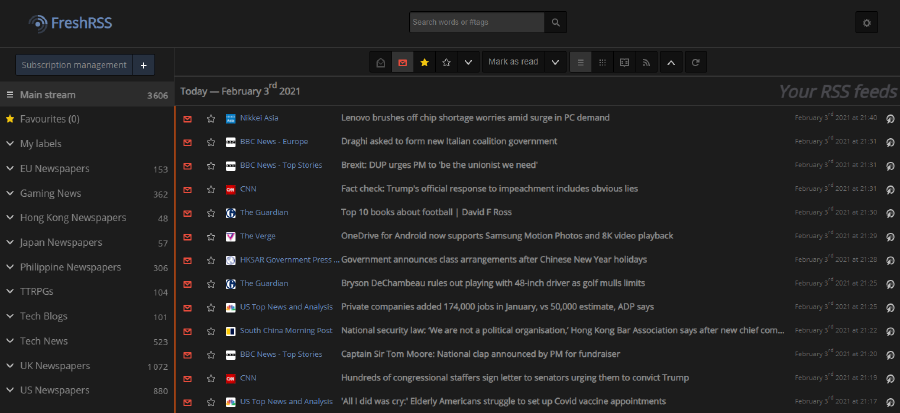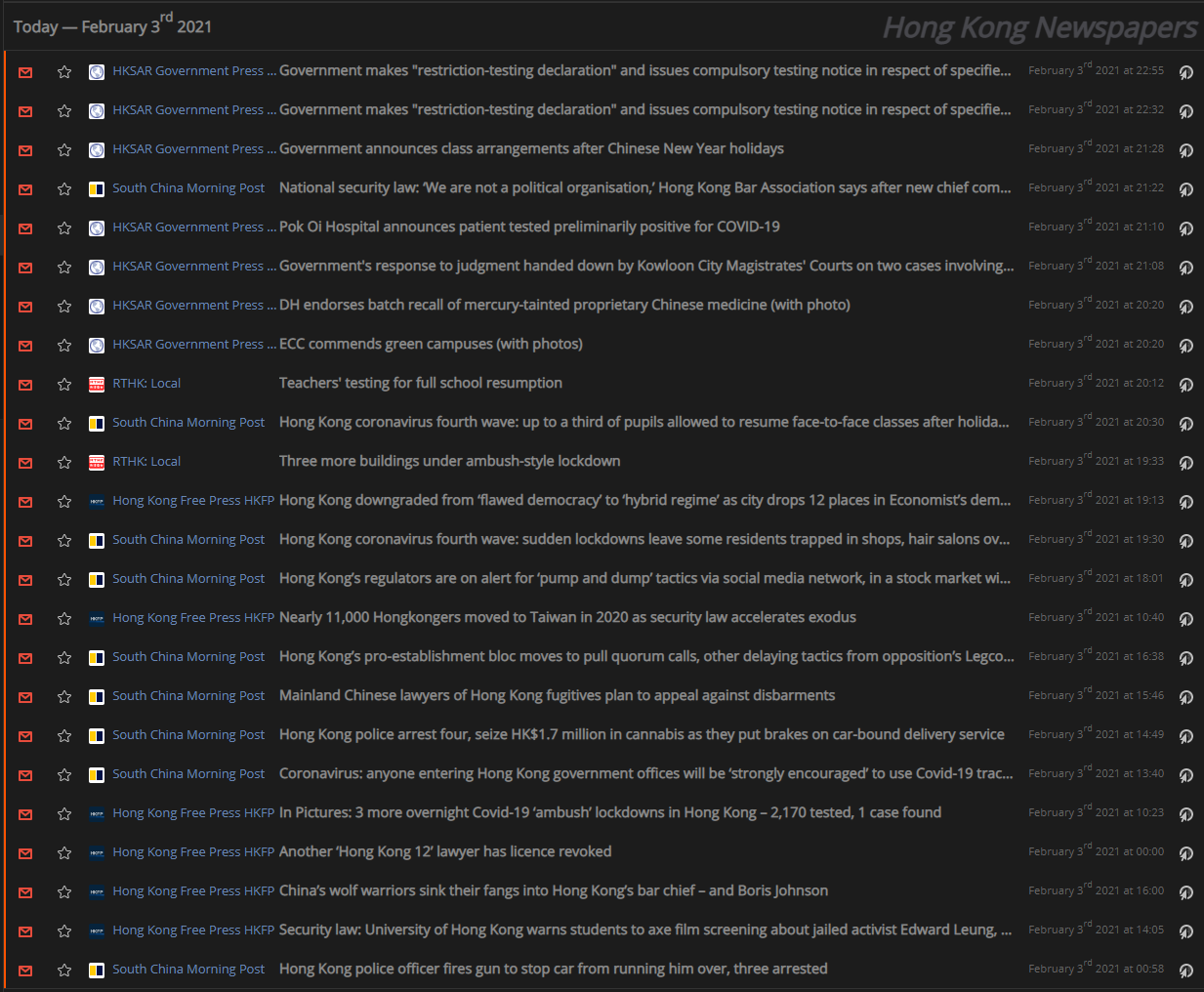RSS Readers

Lately I have been trying to stay on top of the news more. Despite 2020 being “the year everyone stayed put” a lot still happened. And I have been frankly embarrassed at myself for not being able to keep up more with what’s going on in the world. I would read the occasional headline on the South China Morning Post or browse through Reddit’s top page. But that has only produced an opinion that is wide but not deep, and a far call from being fully informed.
This came to a head with the recent controversy over WhatsApp’s new privacy policy where I had only managed to scratch the surface of the issue and had not really dug deep enough to fully appreciate the significance of the shift. It took a friend of mine, who reads far more news than I do, to explain to me just how impactful this new privacy policy could be, and how I was wrong to make light of this issue1. As a self-proclaimed technologist this was more than embarrassing. So I committed to being better. I needed to read the news more.
But doing something like that is often times easier said than done. The news cycle in the 21st century is fast. And it comes from all multitude of different directions and outlets. Each outlet having its own website that I would have to navigate, and it has these “personal algorithms” that they use to serve you the news that it thinks you want to see. All of which only perpetuates the problem of echo-chambers. No thanks.
What I wanted was one place that had all the news that I needed to read, sorted either based on recency or (ideally) relevance. I imagine that this is what many others look for as well, and can be used to explain the popularity of social media (i.e. Facebook, Twitter, Reddit, etc.). The sheer convenience of having everything in one place is hard to beat.
But I didn’t want to use social media. I want out of the echo-chamber. I want to from as close to the source as possible. So what is the best way out of this? And that’s when I remembered about RSS.
Really Simple Syndication (RSS) , is a standardized format websites can post their content on that allows applications to pull and display on feeds2. Websites could post snippets of their articles on their RSS feed with a link to the whole thing, or they could just post the entire article to the feed. First introduced in 1999, RSS was quite popular for a time (I remember my Dad fiddling with his RSS feeds to get them just right). But they’ve fallen to the wayside with the popularity of social media feeds.
RSS has been really useful in helping me stay informed in the last month I have been using it. I found an open-source RSS reader, FreshRSS , that I am able to host on my homelab . And I have loaded it up with as many RSS feeds from reputable news sources as I could find, sorting them by territory.
To my surprise, the majority of the English-language news sources here in Hong Kong support RSS.

So now rather than having to go to multiple different websites, having to grapple with their interfaces, and sorting through what I’ve read or not read, etc. I can just open up my RSS feed, scroll through the headlines and click the articles that interest me. And once I’ve read through the article, my FreshRSS marks them as read and hides them.
Not only have I now been able to keep up with the news better, I’ve also had the opportunity to read more hobbyist and personal blogs. Keeping up with what’s going on in the Linux world , Dungeons & Dragons blogs , or what Bill Gates is up to offers a refreshing break from the (often bleak) news.
Despite RSS being “old tech”, I think that it still has a lot to offer. There is a reason that many modern websites still support the format. It helps us stay informed in a convenient way. If you want to give RSS readers a shot you don’t even have to self-host your own RSS reader. Here is a list of the top RSS readers you could consider .
And if you are going to give using an RSS reader a shot, then maybe you could even add this blog’s feed to it 😉.
-
I knew that WhatsApp messages are end-to-end encrypted, so I didn’t think that letting Facebook access that information was so bad. But I failed to account for the meta data that WhatsApp collects. When, to whom, and how frequently you send messages to a contact, all that information would be shared with Facebook. ↩︎
-
Technically speaking, websites would post their content in something like an
xmloratomformat. Which readers would regularly parse to pull information for their feeds. ↩︎



